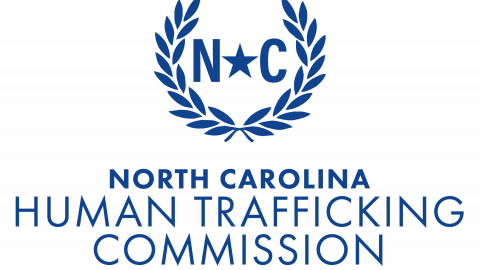January is National Slavery and Human Trafficking Prevention Month
Article contents

January is National Slavery and Human Trafficking Prevention Month. Started by a Presidential Proclamation in 2011, National Slavery and Human Trafficking Prevention Month is intended to raise public awareness of modern-day slavery.
The anniversary of this proclamation, January 11, is known as National Human Trafficking Awareness Day.
NCAOC is working to establish comprehensive human trafficking court personnel and judicial education training programs that build on and enhance the numerous local, regional, national court, justice partner and service provider programs readily available.
Through anti-human trafficking efforts of the North Carolina Human Trafficking Commission, citizens can learn to recognize the signs of human trafficking and how to report suspected instances. By taking steps to become familiar with the telltale signs of traffickers or the signals of their victims, citizens can save innocent lives.
Human Trafficking is a crime that involves the exploitation of a person for the purpose of compelled labor or a commercial sex act through the use of force, fraud or coercion. Human traffickers target all populations around the world and in our own neighborhoods; children are the most vulnerable, particularly runaway and homeless youth.
The North Carolina Human Trafficking Commission is housed in and staffed by the N.C. Administrative Office of the Courts. In 2016-2017, the N.C. Administrative Office of the Courts (NCAOC) received the State Justice Institute grant to increase effectiveness and capacity in human trafficking-related cases. North Carolina has received an “A” rating in the national fight against human trafficking, according to a recent report produced by Shared Hope International, thanks to the work of the North Carolina Human Trafficking Commission. North Carolina’s report card rating of 94 is significant and demonstrates an improvement from the “90” rating received in 2018, and illustrates significant improvement from 2011, when North Carolina received a score of 61 or “D.” North Carolina’s ranking among states improved from 9th in 2018, to 8th overall over the past year.
More Information
The North Carolina Human Trafficking Commission is the legislatively mandated leader of anti-human trafficking efforts in North Carolina per S.L. 2013-368. The Commission is charged primarily with examining and combating human trafficking; funding and facilitating research; creating measurement, assessment, and accountability measures; informing and educating law enforcement personnel, social services providers, and the general public; suggesting new policies, procedures, and legislation; developing regional response teams and identifying gaps in law enforcement or service provision and recommending solutions.
For more information on human trafficking reports and legislation, view the Human Trafficking Commission Reports and Materials.